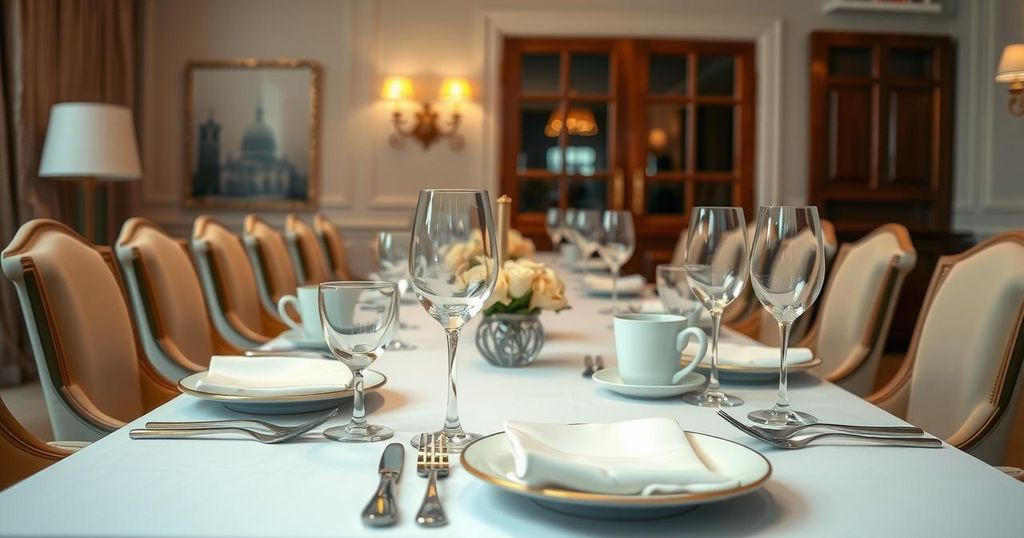Trump Hosts Pakistan’s Asim Munir at White House During Tense Times

President Trump hosted Pakistan’s Army Chief Asim Munir at the White House, discussing Iran amid heightened tensions in the Middle East. Trump expressed gratitude for Munir’s role in avoiding further conflict. This meeting, while unusual, suggests possible shifts in U.S.-Pakistan relations as the administration navigates complex geopolitical dynamics.
In an unusual move, President Donald Trump recently hosted Pakistan’s Army Chief, Asim Munir, at the White House. This gathering comes as the Pakistani military has garnered a reputation for its connections with terror groups. Reports indicate that officials from Pakistan have even been spotted at the funerals of militants killed during recent operations. The backdrop of this meeting is particularly notable given the rising tensions between Israel and Iran, a region where Pakistan’s influence is often intertwined with that of Tehran.
During the closed-door luncheon, Trump, when speaking to reporters, confirmed that discussions about Iran took place. He emphasized the Pakistani officials’ deep understanding of Iranian affairs, remarking, “They know Iran very well, better than most, and they’re not happy about anything.” The specifics of their conversation remain under wraps, but Trump’s comments hint at possible strategic dialogues regarding Iran’s actions in the region.
After the meeting, Trump expressed his gratitude towards Munir, mentioning how the Pakistani Army Chief helped avoid further conflict. He said, “The reason I had him here was I wanted to thank him for not going into the war and ending the war.” Trump linked the dialogue with Munir to ongoing efforts to broker trade agreements involving not just Pakistan, but also India, which had recently engaged with him as well. He seemed pleased with their mutual decision to steer clear of escalating tensions, stating, “I was honored to meet him today.”
Hosting a foreign military leader—especially someone in Munir’s position—is not the norm for a sitting US president. Although precedents exist, past invitations were usually extended to individuals simultaneously holding the office of president themselves, like Ayub Khan and Pervez Musharraf. This meeting raises questions about the nature of the US-Pakistan relationship and its implications, especially considering Trump’s past criticisms of nations perceived to support terrorism.
Thus, the lunch meeting may signify a thaw in relations, or it could simply be another political maneuver by the Trump administration in the continuing complex global theater that involves military clout, trade negotiations, and regional security concerns.
In summary, President Trump’s meeting with Pakistan’s Army Chief, Asim Munir, showcased an intriguing yet controversial engagement amidst rising tensions in the Middle East. While discussions about Iran emerged, Trump’s tone seemed to underline a desire for peace and cooperation in global trade involving both Pakistan and India. The rarity of such a meeting also signals potentially significant shifts in U.S.-Pakistan relations, given historical precedents and recent criticisms surrounding terrorism.
Original Source: www.timesnownews.com






